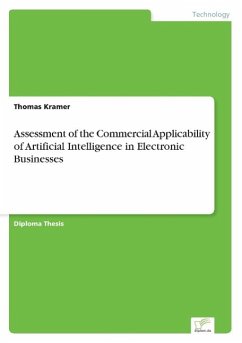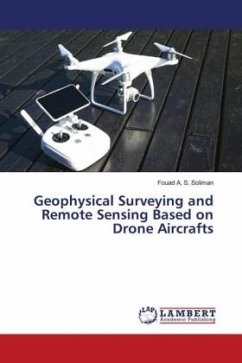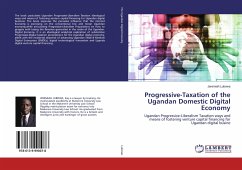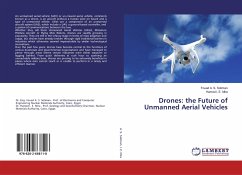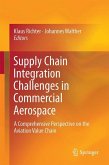Diploma Thesis from the year 2002 in the subject Engineering - Artificial Intelligence, grade: 1,3, European Business School - International University Schloß Reichartshausen Oestrich-Winkel (Betriebswirtschaftslehre), language: English, abstract: Abstract:
Artificial intelligence has already been applied to many areas since its official birth in 1956, but most of the applications ended up in great disappointments as the benefits they reaped were very low. Due to this reason the vast interest in applying this relatively young technology to business calmed down in the late seventies when scientists recognized that the current intelligent systems were not yet plug-and-play solutions, hence mature enough to fully meet the business needs and requirements at that time. However, the limited commercial applicability of artificial intelligence in the past has to be rethought today as with the significant progress in artificial intelligence research and the growth of electronic commerce conducted over the World Wide Web new opportunities for business applications of artificial intelligence have emerged consequently.
Nowadays horizontal and vertical electronic commerce is significantly driven by intelligent applications. Their employment in electronic businesses may well generate huge returns on investments, providing a technology-based response to increasing competition, the volatility of business models, and the pace of technology change . Despite the wide assumption that artificial intelligence will have a major impact on Internet-related businesses today and especially in the next years to come, it is uncertain to what extent it performs and will perform that way. The purpose of this thesis is to analyse, assess and evaluate the potential of commercial applications of artificial intelligence in electronic businesses. Therefore the main research question of this paper is whether artificial intelligence is reasonably applicable in Internet-related businesses, first in terms of effectiveness and second in terms of efficiency. In the assessment the application of artificial intelligence in electronic businesses is represented by the employment of intelligent agents.
In harmony with the major research question emphasized above, the paper provides a thorough discussion about the economic impact of the most common and relevant application types of intelligent agents on electronic commerce environments. In addition the driving underlying technologies of intelligent agents are analysed with respect to artificial intelligence techniques and methods, and current standardisation efforts. [...]
Hinweis: Dieser Artikel kann nur an eine deutsche Lieferadresse ausgeliefert werden.
Artificial intelligence has already been applied to many areas since its official birth in 1956, but most of the applications ended up in great disappointments as the benefits they reaped were very low. Due to this reason the vast interest in applying this relatively young technology to business calmed down in the late seventies when scientists recognized that the current intelligent systems were not yet plug-and-play solutions, hence mature enough to fully meet the business needs and requirements at that time. However, the limited commercial applicability of artificial intelligence in the past has to be rethought today as with the significant progress in artificial intelligence research and the growth of electronic commerce conducted over the World Wide Web new opportunities for business applications of artificial intelligence have emerged consequently.
Nowadays horizontal and vertical electronic commerce is significantly driven by intelligent applications. Their employment in electronic businesses may well generate huge returns on investments, providing a technology-based response to increasing competition, the volatility of business models, and the pace of technology change . Despite the wide assumption that artificial intelligence will have a major impact on Internet-related businesses today and especially in the next years to come, it is uncertain to what extent it performs and will perform that way. The purpose of this thesis is to analyse, assess and evaluate the potential of commercial applications of artificial intelligence in electronic businesses. Therefore the main research question of this paper is whether artificial intelligence is reasonably applicable in Internet-related businesses, first in terms of effectiveness and second in terms of efficiency. In the assessment the application of artificial intelligence in electronic businesses is represented by the employment of intelligent agents.
In harmony with the major research question emphasized above, the paper provides a thorough discussion about the economic impact of the most common and relevant application types of intelligent agents on electronic commerce environments. In addition the driving underlying technologies of intelligent agents are analysed with respect to artificial intelligence techniques and methods, and current standardisation efforts. [...]
Hinweis: Dieser Artikel kann nur an eine deutsche Lieferadresse ausgeliefert werden.

